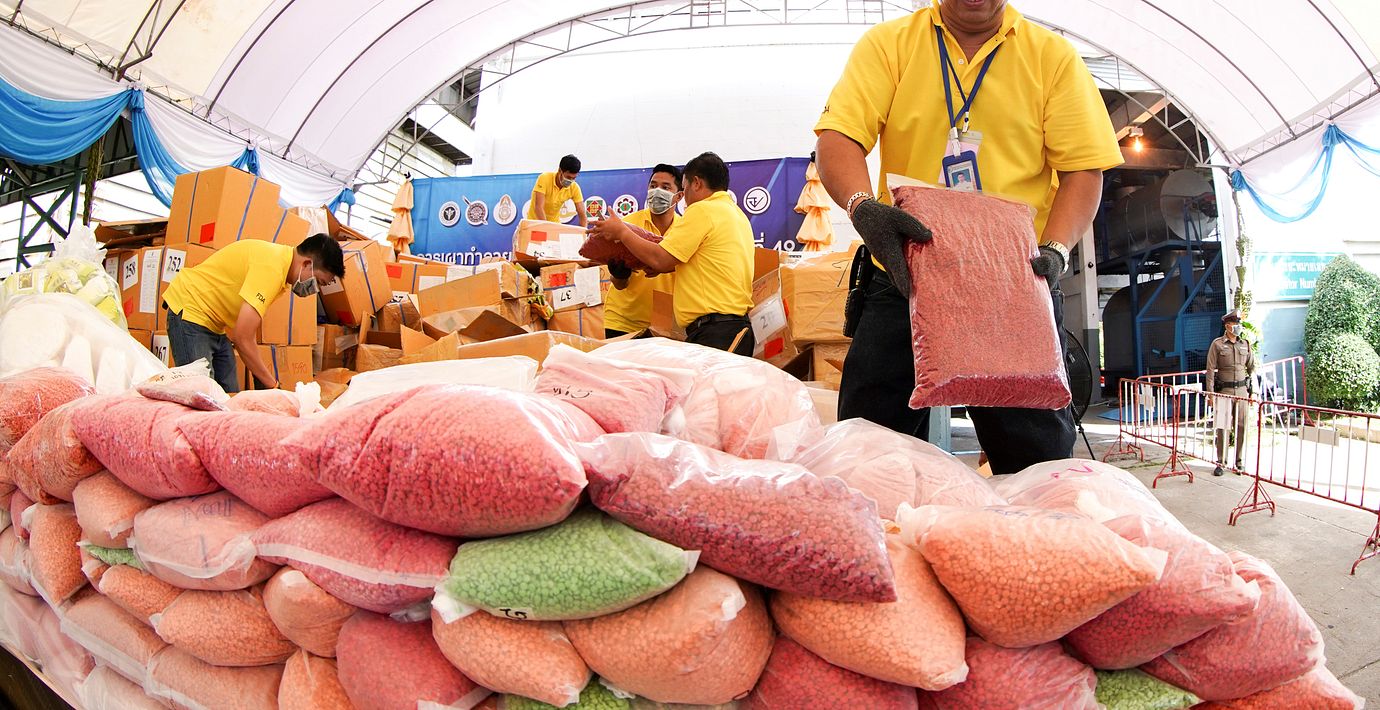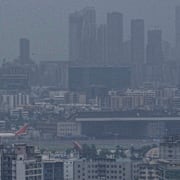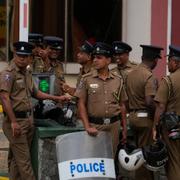
Rekordbeslag i Asien i fjol: En miljard tabletter
En miljard metaamfetamintabletter beslagtogs i östra och sydöstra Asien i fjol – ett rekordhögt antal, uppger FN:s drogbekämpningsbyrå UNODC enligt AFP.
Det motsvarar närmare 172 ton av drogen – sju gånger mer än för ett årtionde sedan.
– Skalan och omfattningen hos handeln med metaamfetamin och syntetiska droger i östra och sydöstra Asien är förbluffande, säger Jeremy Douglas vid UNODC.
Kriminella gäng som tillverkar drogerna utnyttjar den politiska instabiliteten och bristande lagföringen i den så kallade Gyllene triangeln – gränsområdet mellan Thailand, Laos och Myanmar.
bakgrund
Gyllene triangeln
Wikipedia (en)
The Golden Triangle is the area where the borders of Thailand, Laos, and Myanmar meet at the confluence of the Ruak and Mekong rivers. The name "Golden Triangle"—coined by the CIA—is commonly used more broadly to refer to an area of approximately 950,000 square kilometres (367,000 sq mi) that overlaps the mountains of the three adjacent countries.
Along with Afghanistan in the Golden Crescent, it has been one of the largest opium-producing areas of the world since the 1950s. Most of the world's heroin came from the Golden Triangle until the early 21st century when Afghanistan became the world's largest producer. The majority of the region's opium is now produced in Myanmar and, to a lesser extent, Laos.
Opium production in Myanmar is the world's second-largest source of opium after Afghanistan, producing some 25% of the world's opium, forming part of the Golden Triangle. In recent times however, opium poppy cultivation in Myanmar has declined year-on-year since 2015. According to latest data from the United Nations Office on Drugs and Crime (UNODC), an estimated 405 metric tons (mt) of opium were produced in Myanmar in 2020, representing less than half of the estimate of 2013 (870 mt), while the area of opium poppy cultivation declined by 11% from 33,100 in 2019 to 29,500 hectares (ha). With that said, the United Nations Office on Drugs and Crime (UNODC) has warned that opium production in Myanmar may rise again if the economic crunch brought on by COVID-19 and the country's 1 February Military coup persists, with fallout for much of Asia.
Omni är politiskt obundna och oberoende. Vi strävar efter att ge fler perspektiv på nyheterna. Har du frågor eller synpunkter kring vår rapportering? Kontakta redaktionen



